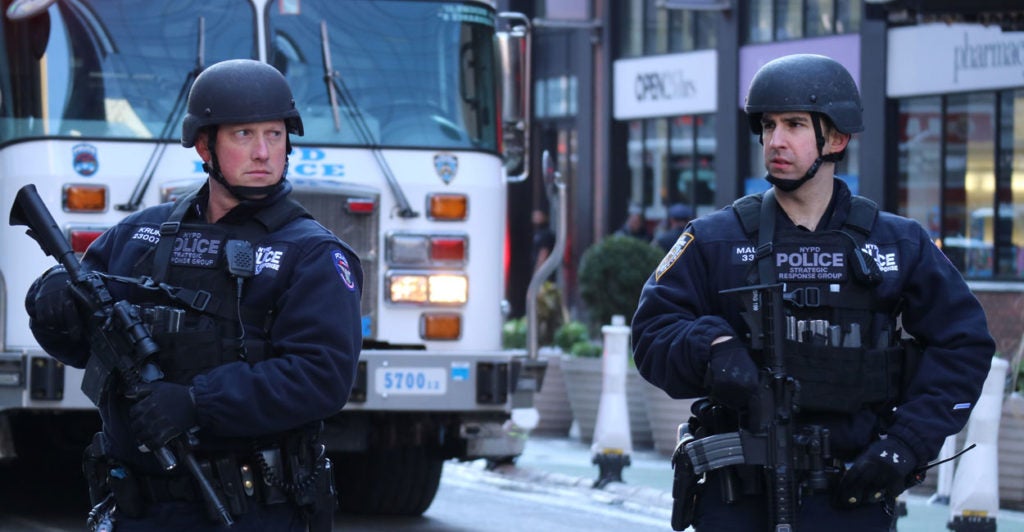Monday’s botched terror attack in New York is another example of homegrown terrorism.
Akayed Ullah, a Bangladeshi national in his late twenties, is reported to have set off a bomb at the Port Authority bus station in Manhattan. Fortunately, the bomb went off early and there were no deaths, though at least three were wounded and the terrorist himself was badly injured.
Since 9/11, there have been over 100 terrorist attacks against the U.S. homeland, and nearly 88 have been acts of homegrown terror. Early reports indicate that Monday’s attack was inspired by ISIS, but more investigation and interviews must be done first.
Heritage Foundation security and cyber expert David Inserra joined The Daily Signal podcast today to break down keys to fighting terrorism, both in the short and long run. He also discussed the future of the Department of Homeland Security under its new secretary.
Here are the highlights.
1. Assimilation is key.
Vetting and enforcement of immigration laws are extremely important to stopping radicalization and terrorism on the U.S. homeland. When people feel loyal and indebted to this country and respect our values, culture, and ideals, they are more likely to assimilate and be engaged members of our communities rather than radicalize.
The failure to assimilate is a problem that our country faces with both immigrants and refugees, and there is no clear solution to it. But acknowledging the importance of assimilation is a critical first step to recovering the reality of “e pluribus unum” — out of many, one.
2. Congress must privatize the TSA.
The Transportation Security Administration (TSA) routinely undergoes “Red Team” tests to measure how well security practices and standards are implemented. In 2015, the TSA failure rate was an abysmal 95 percent. Nearly three years later, the rate has only fallen to 80 percent, some sources indicate.
In the private sector, any company with a performance as atrocious as this would be making serious changes in personnel and procedure.
It’s time for Congress to act and privatize the TSA. Doing so would increase accountability and productivity, would be cost-effective, and would not compromise our security. Other countries like Canada have taken this path, and have seen success.
By making TSA strictly into an oversight and managerial agency, private company would be enabled to provide high-quality security, while allowing the TSA to do what it does best: regulate and hold accountable. That’s the opposite of how the system works now.
3. Kirstjen Nielson’s confirmation is a win for Homeland Security.
Kirstjen Nielson is a highly competent, experienced leader who is the right person to the lead the Department of Homeland Security in John Kelly’s absence. The Senate recently confirmed her in a 62-37 vote.
Nielson served on President George W. Bush’s homeland security council, and also worked at the TSA. She has also worked at George Washington University’s prestigious Center for Cyber and Homeland Security, and began her own homeland security consulting firm.
The Department of Homeland Security faces several critical challenges, but Nielson is well-equipped to handle them and to serve.
>>> Related: Trump Ties New York Terror Attack to Immigration Reforms
